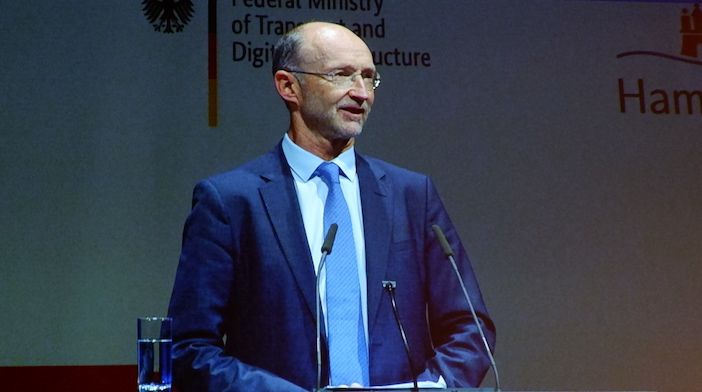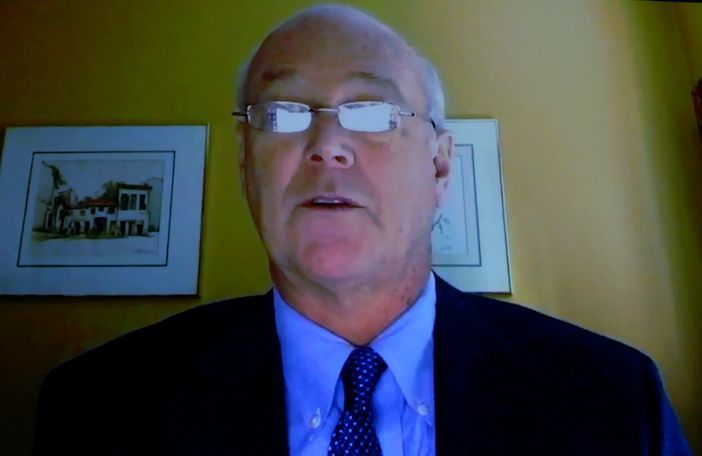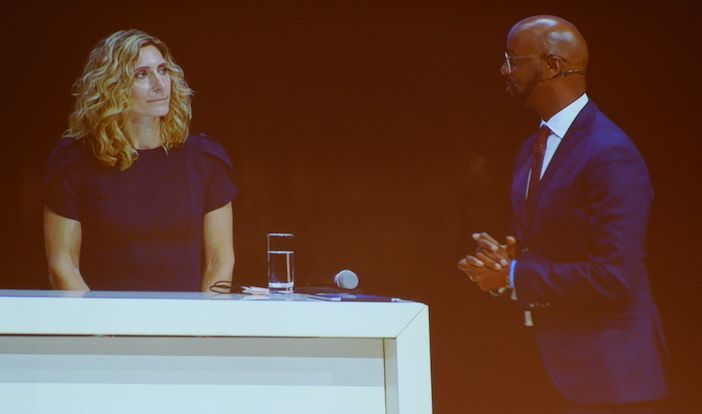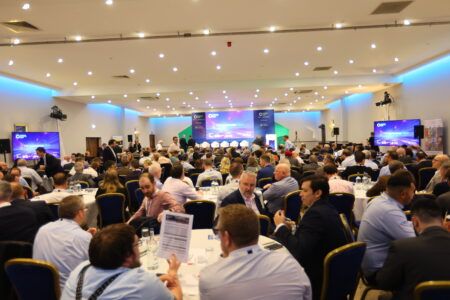The 27th ITS World Congress got underway with an official opening ceremony, at the CCH Congress Center in Hamburg, featuring input from two of the city’s most famous names, Angela Merkel, who grew up in Hamburg, and The Beatles, whose music soundtracked the event in recognition of the fact that the Fab Four played their first live concerts at the nearby Star Club.
The music, played by a live local band, and recorded message from the German Chancellor, were followed by live addresses from the city’s First Mayor Peter Tschentscher and Michael Baldwin, Deputy Director General DG MOVE.
Both speakers expressed their pleasure at seeing the ITS community gathered together in such numbers for the first time since the ITS World Congress in Singapore two years ago, with Hamburg recognised as being one of the smartest cities in Europe. Both also focused on the need to put technology into action as soon as possible.

Baldwin emphasised the importance of data sharing in creating even smarter cities in the future: “The European Commission has an ambitious objective to deliver, by 2023, a solution allowing for seamless flow of information across all transport modes, between all types of supply chain and stakeholders without, of course, commercial compromise of their commercial independence,” he said. “Digitalization is also the basis for more automation, and the European Commission’s ambition is to help the deployment of automated mobility at a large scale by 2030.
“To this end, the commission has created the cooperative, connected automated and autonomous mobility platform to gather together and drive forward the knowledge and 400 public and private stakeholders on key topics, such as road safety and cybersecurity connectivity and physical and digital infrastructure, and how we can coordinate on future innovation.”
Baldwin’s address was followed by video messages from Tetsuro Fukunaga, executive director of the Japan Machinery Center for Trade and Investment, and the USDOT’s Ken Leonard, director of ITS JPO, USDOT, who spoke about the huge challenges facing the world, which have only been magnified by the Covid-19 pandemic, which prevented him from making the trip to Germany.

“While transportation has served as a vital engine of growth, it’s also been the largest contributors to greenhouse gas emissions,” says Leonard. “Highways have, despite improving travel and convenience for many, displaced or disrupted minority communities, and resulted in nearly 40,000 lives lost in crashes in the United States.
“So as we look ahead, any strategy that we adopt must consider how to move forward in an uncertain future, and ensure equity in any approach to solve problems we’re solving. I believe that ITS technologies have the power to address these challenges and to save lives.
Next, live on stage, were the leaders of the three major ITS organisations around the globe. Jacob Bangsgaard, Hajime Amano, Laura Chace, who together represent ERTICO-ITS Europe, ITS Asia-Pacific and ITS America.
Chace, who was speaking for the first time in her new role as president and CEO of ITS America, spoke of her desire to bring the focus of the organisation’s principles to a personal level.

“My priority for ITS America is advancing our vision of a safer, greener, smarter future and tying that to how it impacts people’s lives. Transportation is a key linchpin in access to economic opportunity, healthcare services – which we of course saw during the pandemic –and it’s important for people be able to connect to that opportunity no matter who they are or where they live.
“So that’s what I’ll be focusing on and I believe a key part of, of bringing that vision to life is ensuring that we have more diverse perspectives in the industry, because I believe as we make as investments, it’s critically important to ensure that while we make them we’re lifting everyone.”



